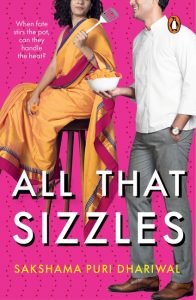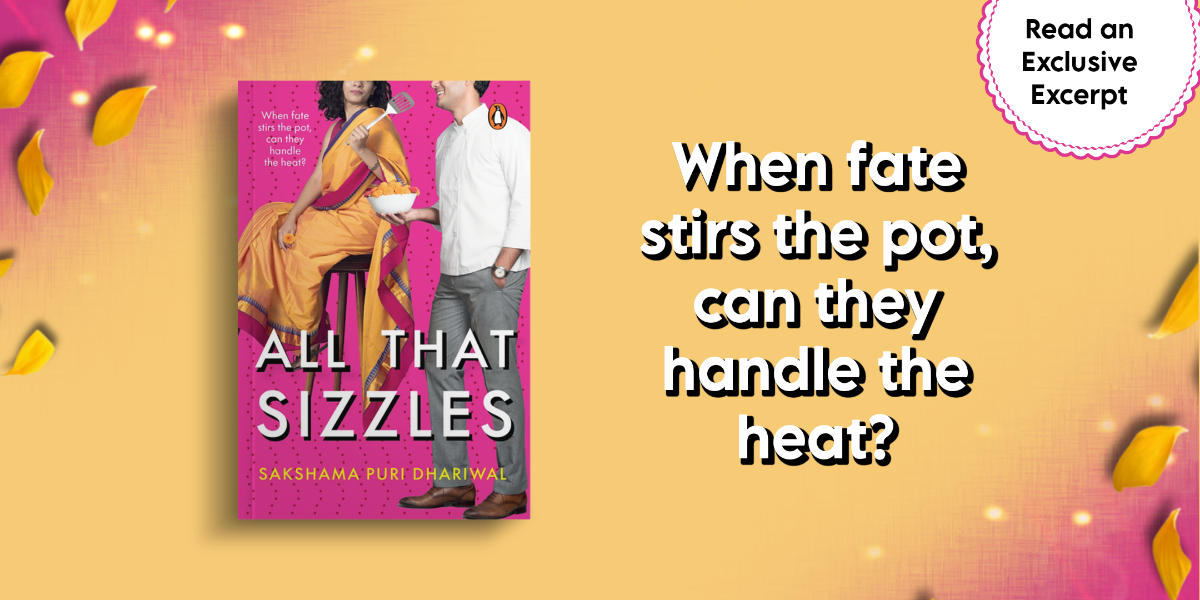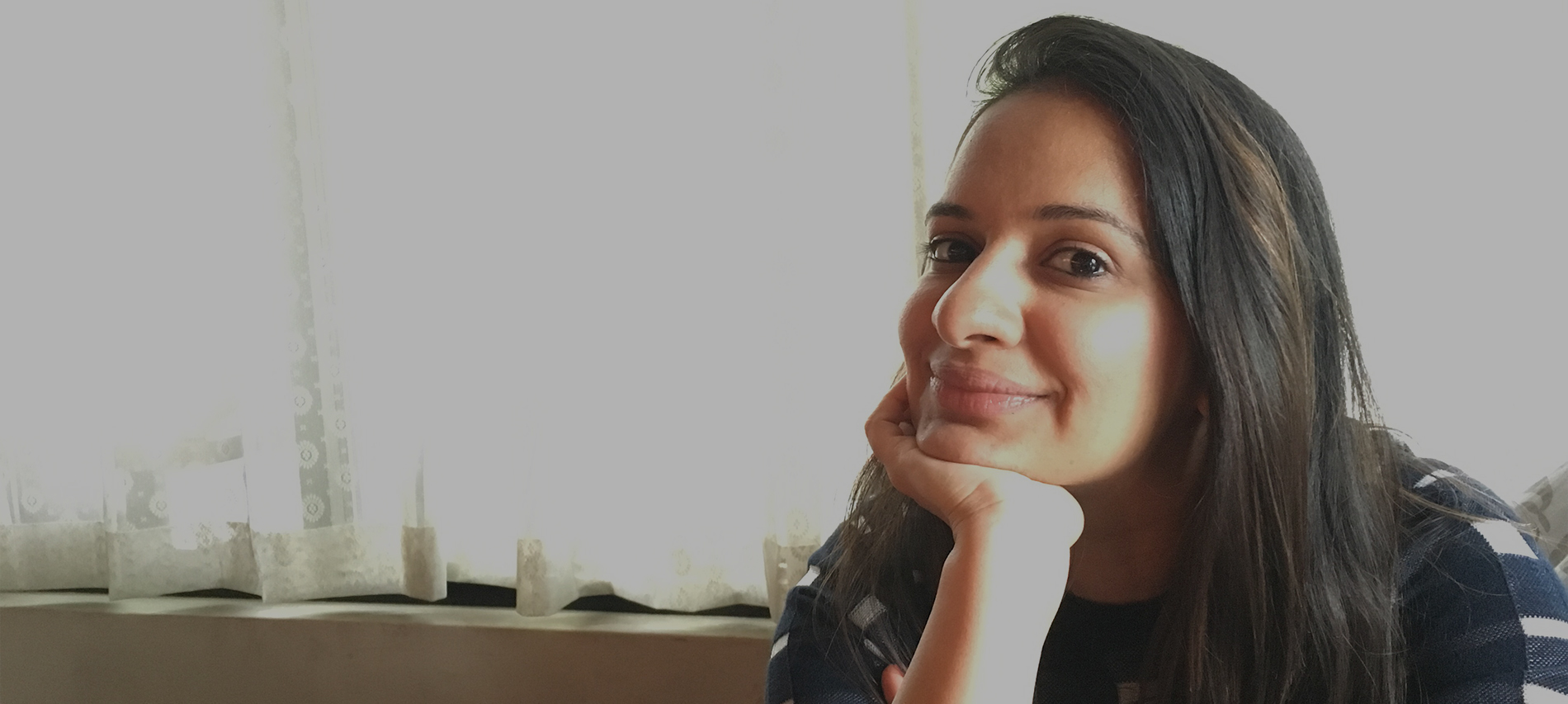Let us introduce you to the dazzling world of All That Sizzles by Sakshama Puri Dhaliwal, where wedding planner Tanvi Bedi faces a spicy challenge – organizing a $100 million wedding for a media heiress. The twist? She needs chef Nik Shankar, a guy who avoids weddings like the plague. And well…Nik must find a life partner to secure that bag because…REASONS!
Join the fiery passion as Tanvi and Nik embark on a fake engagement that might just turn into the love story they never knew they needed.
Can you hear the sizzle?

‘And to my grandson, Nikhil, I transfer the following assets:
1. Gitanjali by Rabindranath Tagore (first edition, hardcover, 1912) [Annexure II]
2. 1924 Rolls-Royce [Annexure III],
3. The apartment in Mayur Vihar, New Delhi [Annexure IV/A]
4. The property in Ambargarh (Alwar, Rajasthan) [Annexure IV/B]
5. Rs 8.62 crore in fixed deposits and bonds [Annexure V] conditional upon his marriage.’
Ruq frowned. ‘What happens if he never marries?’
‘As per a caveat in Clause 13.2, the condition expires in 2035,’ Rahul said.
‘So, I have until 2035 to get married?’ Nik asked.
‘Yes.’
‘And if I don’t?’
‘Clause 13.4. The assets will transfer to the Ministry of Culture.’
‘Can I trade the other assets for Ambargarh?’
Rahul looked at him like he had taken leave of his senses. ‘That doesn’t make sense financially. The car alone is worth more than—’
‘Can I do it?’ Nik asked.
‘Unfortunately, not.’
‘Can I buy it back from the government?’
‘You can try,’ Rahul said drolly. ‘Good luck navigating the reams of red tape.’
For the first time in years, Nik felt a hot, blinding rage towards the sadistic bastard that was his grandfather. Over the last decade, he had carefully cultivated a feeling of indifference towards the man, deigning to give him mind space only when their last remaining connection came up: Ambargarh.
The property had been bequeathed to Nik’s mother, Suchitra Devi, by her great-uncle, the Prince of Alwar, but had been under dispute for several years. After the fateful night that had ripped their family apart, Suchitra had moved into an ashram in Kerala, leaving her father— Nik’s grandfather—Vijay Pratap Singh Chauhan, as the attorney-in-fact.
Last year, the courts had finally awarded the property to Suchitra, leaving Vijay Pratap to do with it as he deemed fit.
Nik wanted it more than anything in the world.
And that sonofabitch knows it, he thought bitterly.
‘Ghost pepper,’ Nik muttered.
‘Huh?’ Rahul asked.
‘He’s pissed off,’ Ruq explained.
‘He is?’ the lawyer asked sceptically. His client seemed extremely composed, almost zen like.
But Ruq knew better. For years, she had witnessed Nik’s involuntary reflex of naming foods that accurately captured his thoughts in the moment. The ghost pepper was one of the spiciest chilli peppers in the world and certainly the hottest one they used in their kitchen.
Nik might be known for his patience and even temper, but Ruq could bet that underneath his calm demeanour, the chef was simmering.
‘He is,’ Ruq confirmed.
‘I’m fine,’ Nik gritted, his tone belying his words.
Rahul casually brushed a piece of lint off the lapel of his charcoal grey suit. ‘You could just speak to your grandfather, you know? Ask him to reconsider the terms of—’
‘I would rather die,’ Nik said.
‘I suppose that limits your options,’ Rahul shrugged.
‘To what?’ Ruq asked.
‘Marriage,’ Rahul said bluntly.
‘What if he gets married, takes possession of the assets and divorces his wife?’ Ruq asked.
‘Now that definitely sounds like a bad movie,’ Rahul said dryly.
Ruq arched an eyebrow, waiting for a response.
Rahul resisted the urge to roll his eyes. ‘I suppose he could. With an ironclad prenup.’
‘Can they prove that he’s not married?’ Ruq asked.
‘What?’ Rahul asked, bemused.
‘What?’ Nik repeated.
Ruq’s eyes widened, and Nik could almost see the wheels in her head turning. ‘Can they prove he’s not married?’
‘Can you prove he is?’ Rahul countered.
‘What proof do we need?’ Ruq asked.
‘A marriage certificate. A wedding card. Photos. Not to mention . . .’ Rahul paused for effect. ‘. . . a wife.’
‘What if she’s not his wife yet, but—’
‘I can guess where this is going,’ Rahul held up a hand. ‘The less I know, the better. As Nik’s lawyer, I can only advise him to pursue a legal path.’
‘But isn’t the law open to interpretation?’ Ruq argued. Rahul looked at her like she was deranged.
‘Call Prabhakar inside,’ Ruq said.
Rahul ignored that. Ruqsana might be Nik’s partner,
but Rahul didn’t take orders from her. He turned to Nik.
‘What do you want me to do?’
Nik looked at Ruq, What the hell are you playing at?
She gave him a reassuring nod. Trust me.
A few minutes later, a stout bespectacled man walked into the room. In contrast to his thinning hair, his moustache was thick and bushy, covering most of his upper lip. He wore an old, cheap suit over a striped polyester shirt. The buttons barely held his shirt together
and his stomach threatened to break free from their shackles any minute.
‘So? We have reached agreement?’ Prabhakar asked in his broken English.
‘Apparently,’ Rahul said with a resigned sigh, gesturing to Ruqsana.
‘Do you think Mr Chauhan would consider relaxing the condition to “engaged” instead of “married”?’ Ruq asked.
Understanding flashed in Nik’s eyes.
‘You are engaged?’ Prabhakar frowned at Nik.
***
Want to know what happens next?
Get your copy of All That Sizzles by Sakshama Puri Dhaliwal wherever books are sold.









